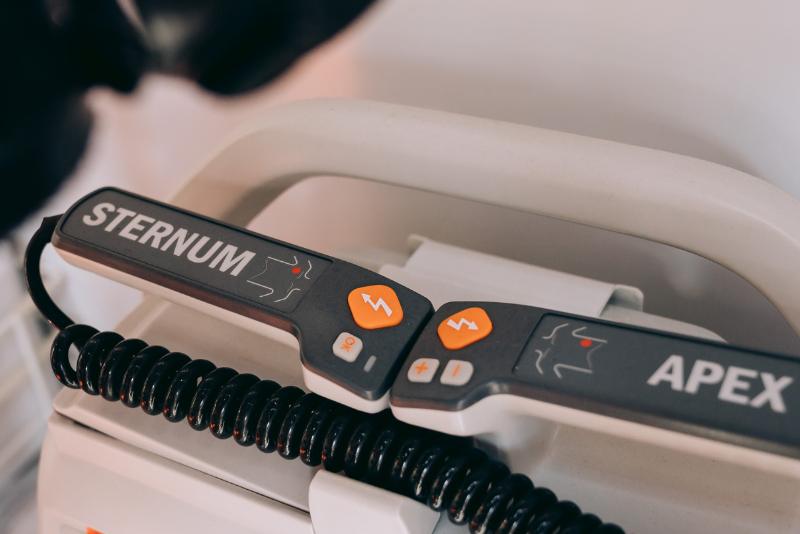The Departments of Labor, HHS and Treasury have issued FAQs that address insurance and group health plan coverage that is required under the FFCRA and the CARES Act for OTC Covid rapid tests. OTC Covid rapid tests are those that can be self-administered and self-read at home without the involvement of a health care provider. The guidance indicates that this coverage requirement was not addressed in previous Covid testing guidance because the FDA had not yet authorized any Covid diagnostic tests that could be completely used and processed at home. Such tests have since been approved and are being regularly used (contingent on availability).
This new guidance is separate from the Biden administration’s promise to deliver up to 500 million free OTC Covid tests to individuals who request them.
Coverage Requirements
Health insurers and self-insured group health plans must cover OTC Covid tests without a physician’s order or individualized clinical assessment. Except as described below, coverage must be provided in full (no deductible, copay or coinsurance; no prior authorization; no other medical management techniques). The insurer or plan may provide direct coverage (no cost to participant at point of sale) or coverage via reimbursement.
The FAQs provide two safe harbor limitations on the extent of coverage of OTC Covid tests that may reduce overall plan costs:
- A plan or insurer may limit the number of OTC Covid tests covered for each individual to 8 tests per 30-day period (or per calendar month). This limitation applies only to OTC Covid tests, so insurers and plans must continue to cover an unlimited number of Covid tests that are ordered by a health care provider without cost-sharing. If the insurer or plan provides no-cost direct coverage at in-network pharmacies and also provides a no-cost direct-to-consumer shipping program (using in-network pharmacies or another entity), then the insurer or plan may limit reimbursement for OTC Covid tests purchased from out-of-network pharmacies and other retailers to the lesser of the actual cost of the test or $12. This safe harbor is only available to the extent that plan or insurer can ensure that there is adequate access to in-network and direct-to-consumer OTC Covid tests. If an insurer or plan is at any time unable to meet the requirements of this safe harbor (for example, if there are delays that are significantly longer than the amount of time it takes to receive other items under the plan’s or insurer’s direct-to-consumer shipping program), the plan or insurer would be required to provide coverage for OTC Covid tests obtained from out-of-network pharmacies and other retailers without cost-sharing.
If a plan or insurer does not comply with the requirements of this safe harbor, then all OTC Covid tests must be covered without cost-sharing, whether obtained from an in-network pharmacy, out-of-network pharmacy, any retailer or any direct-to-consumer program.
- A plan or insurer may limit the number of OTC Covid tests covered for each individual to 8 tests per 30-day period (or per calendar month). This limitation applies only to OTC Covid tests, so insurers and plans must continue to cover an unlimited number of Covid tests that are ordered by a health care provider without cost-sharing.
Importantly, the FAQs do not modify prior guidance which stated that Covid tests of any type not intended for individualized diagnosis or treatment (including tests for employment purposes) are not covered. This will be an important limitation if OSHA’s vaccinate or test requirement is fully implemented because OTC Covid tests obtained by employees for this purpose should not be covered by an insurer or health plan. This will have to be clearly communicated to participants.
A plan or insurer may act to detect, prevent and address fraud and abuse. A plan or insurer may take reasonable steps to ensure that an OTC Covid test for which an individual seeks coverage was purchased for the individual’s own personal use (or use by another covered member of the individual’s family), provided that such steps do not create significant barriers for participants to obtain OTC Covid tests. For example, a plan or insurer could require an attestation, such as a signature on a brief attestation document, that the OTC Covid test was purchased by the participant for personal use, not for employment purposes, has not been (and will not be) reimbursed by another source, and is not for resale.
Education and Support
Participants should be notified of this new coverage requirement. In addition, the FAQs state that participants may benefit from education, as well as other forms of consumer support, in order to access and use OTC Covid tests as intended. Therefore, plans and insurers may provide education and information resources to support participants seeking OTC Covid testing, as long as such resources make clear that the plan or insurer provides coverage for and reimbursement of OTC Covid tests.
The education and support may include:
- Guidance to support consumers’ efforts to access and effectively use OTC Covid tests and information to explain the differences between OTC Covid tests and tests performed or ordered by a health care provider and/or processed in a laboratory.
- Quality information for specific OTC Covid testing products, or information about reliability of OTC Covid test results.
- How to obtain OTC Covid tests directly from the plan or insurer or from designated sellers that receive reimbursement directly from the plan or insurer for the cost of an OTC Covid test, resulting in no charge to the participant at the time of purchase.
- How to submit a claim for reimbursement, including electronic and paper filing options, the required information needed for such a claim, and a description of the documentation that must be submitted in order for the plan or insurer to be able to process the claim promptly and accurately.
Effective Date
This requirement is effective for OTC Covid tests purchased on or after January 15, 2022 and will continue to apply for the duration of the public health emergency. The public health emergency is currently set to expire on January 15, 2022 but we fully expect that it will be further extended for at least another 90 days this week. Insurers and group health plans may, but are not required to, provide coverage for OTC Covid tests purchased before January 15, 2022.
The current shortage of OTC Covid tests may impede rollout of the new coverage policy and may even further exacerbate the shortage as participants take advantage of the opportunity to obtain multiple OTC Covid tests at no cost.




